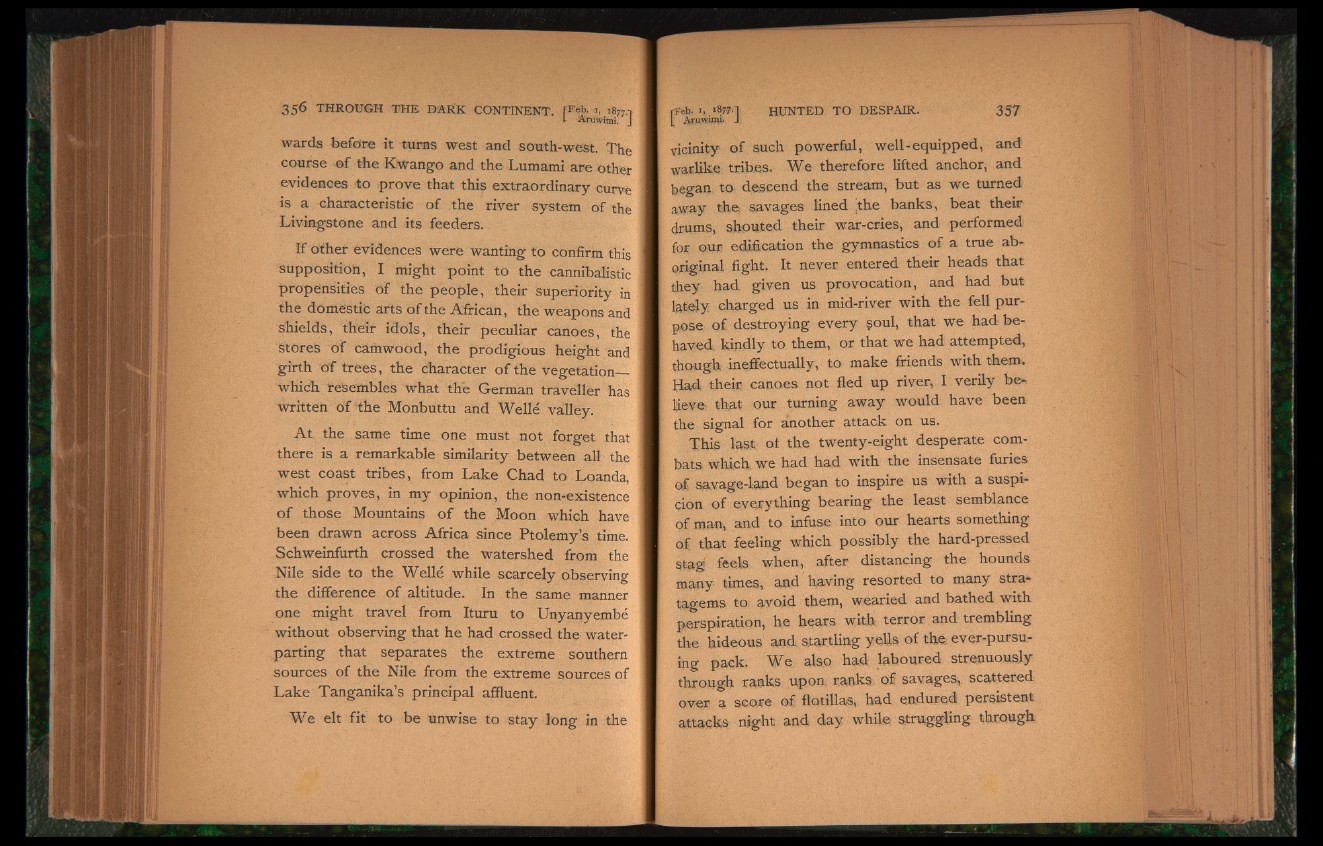
wards before it turns west and south-west. The
course of the Kwango and the Lumami are other
evidences to prove that this extraordinary curve
is a characteristic of the river system of the
Livingstone and its feeders.
If other evidences were wanting to confirm this
supposition, I might point to the cannibalistic
propensities of the people, their Superiority in
the domestic arts of the African, the weapons and
shields, their idols, their peculiar canoes, the
stores of camwood, the prodigious height and
girth of trees, the character of the vegetation—
which resembles what the German traveller has
written of the Monbuttu and Welle valley.
A t the same time one must not forget that
there is a remarkable similarity between all the
west coast tribes, from Lake Chad to Loanda,
which proves, in my opinion, the non-existence
o f those Mountains of the Moon which have
been drawn across Africa since Ptolemy’s time.
Schweinfurth crossed the watershed from the
Nile side to the Welle while scarcely observing
the difference of altitude. In the same manner
one might travel from Ituru to Unyanyembe
without observing that he had crossed the water-
parting that separates the extreme southern
sources of the Nile from the extreme sources of
Lake Tanganika’s principal affluent.
We elt fit to be unwise to stay long in the
r F e b - i , 1 8 7 7 • ] H U N T ED T O D E S PA IR .
[ A r u w im i . J
vicinity of such powerful, well-equipped, and
warlike tribes. We therefore lifted anchor, and
began to descend the stream, but as we turned
away the, savages lined .the banks, beat their
drums, shouted their war-cries, and performed
for our edification the gymnastics of a true aboriginal
fight. It never entered their heads that
they had given us provocation, and had but
lately charged us in mid-river with the fell purpose
of destroying every §oul, that we had- behaved
kindly to them, or that we had attempted,
though ineffectually, to make friends with them.
Had their canoes not fled up river, I verily be-
ljieve that our turning away would have been
the signal for another attack on us.
This last of the twenty-eight desperate combats
which we had had with the insensate furies
of savage-land began to inspire us with a suspicion
of everything bearing the least semblance
of man, and to infuse into our hearts something
of that feeling which possibly the hard-pressed
Stag feels when, after distancing the hounds
many times, and having resorted to many stratagems
to avoid them, wearied and bathed with
perspiration, he hears with terror and trembling
the hideous and startling yells of the, ever-pursu-
¡ug pack. We also had laboured strenuously
through ranks upon ranks of savages, scattered
over a score of flotillas, had, endured persistent
attacks night and day white struggling through